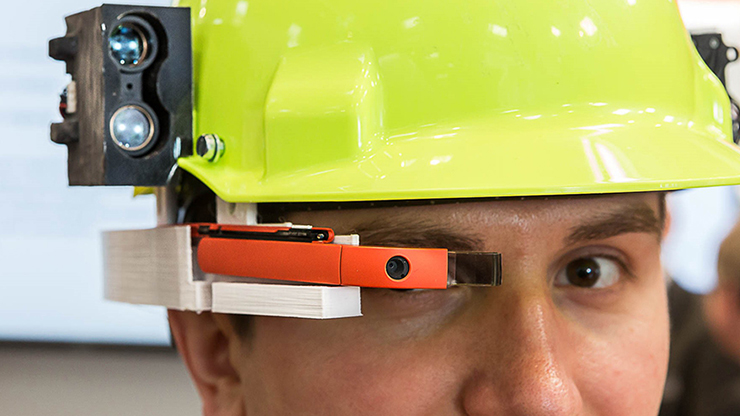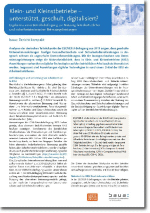Opportunities and risks of digitalisation for a human-centred work design
Artificial intelligence, big data, mobile working, industry 4.0 - digital technology is transforming the world of work. With this interdisciplinary focus programme, BAuA is helping to ensure these changes are managed humanely.

Digitalisation has been shaping our ever more closely interconnected world for several decades. In recent years, however, technological change has disrupted the world of work so profoundly that a dramatic transformation in the nature of work itself has tangibly been taking place. On the one hand, this has been driven by specific technologies such as robots that collaborate with humans, artificial intelligence (AI), and the processing of massive volumes of complex data (big data). On the other hand, new technologies have encouraged developments such as flexibilisation, mobility, and permanent availability - with consequences for employees’ physical and mental health.
Under its cross-disciplinary research programme Occupational Safety & Health in the Digital World of Work, the Federal Institute for Occupational Safety and Health (Bundesanstalt für Arbeitsschutz und Arbeitsmedizin, BAuA) is contributing actively to the debate on key questions about what our worlds of work should look like in future. Human-centred approaches to work design are systematically integrated into the focus programme’s conceptual framework, with consideration being given to the risks posed to employees just as much as the new opportunities that are opening up. The pressures digitalisation has placed on occupational safety and health (OSH) provision, both within organisations and across the economy as a whole, are also being analysed.
In this context, the assessment of human-centred work design during this period of digital transformation is founded on criteria that have been well-established for many years in ergonomics. Some of these criteria have remained consistently relevant as digitalisation has spread: the diversity of requirements workers have to satisfy and time elasticity, for example. Some are becoming more important as a result of digitalisation and will therefore have to be adjusted or expanded, including the extent to which tasks promote interaction and whether they facilitate learning. In addition, digitalisation has made a number of new criteria relevant for the first time. These include technological reliability and new forms of flexibility. What is more, an important role is played by multidimensional, values-based criteria like the amount of attention paid to individuality and diversity, the human-centred deployment of technological innovations, and the demand for clear lines of responsibility in the OSH field.
The focus programme consists of three components:
- Systematic monitoring of technological change and its impacts on working conditions (Monitoring the digital world of work): All sorts of wishful ideas and anxieties tend to be expressed in public discussions of digitalisation’s consequences for safety and health at work. Our research supplies facts that make it possible to conduct such discussions more objectively.
- Task-specific analysis of the effects of digital change and the development of human-centred guiding principles for working in a digitalised world (Tasks in times of digital change): We seek to analyse how workers’ tasks are evolving in the era of digitalisation. To do this, we apply a methodology that distinguishes between object-related, information-related, person-related, and leadership and management tasks.
- Systematisation of (new) requirements for technical and organisational occupational safety and health (OSH systems in the digital world of work): Work processes are increasingly being dominated by digital technologies, thus making the OSH situation more dynamic and complex. Our research is focussed on understanding the kinds of effective OSH structures currently in place and the ways they could ideally be improved in a digital world.




